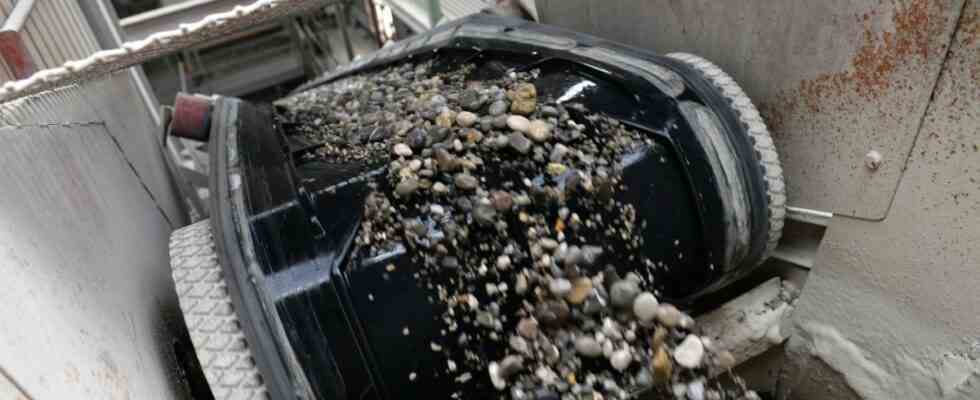Once the district office had given its approval, the Glück company began mining gravel in deeper layers. Conservationists criticize that the groundwater is now also being touched.
The Gräfelfingen gravel company Glück is allowed to mine a further 166,000 cubic meters of gravel in the Planegger municipal area over the next two years. According to the company, it intends to dig down the area of around 4.2 hectares already used in dry mining – the so-called high birket – and thus penetrate further into the area of the groundwater. In April last year, the building committee of the municipality of Planegg unanimously approved the additional dismantling, and a few days ago the Munich district office issued the necessary water law permit. Luck can therefore start work immediately.
For Gräfelfing and Planegg, this probably means additional truck journeys on the roads. According to a press release by the Glück company, the new pit that is now being created should be completely silted up by September 30, 2024. According to the family business, recultivation and reforestation will then take another six years. The Hochbirket pit contains “valuable raw gravel”, which is mined with excavators and “transported away in an environmentally friendly way to processing in Graefelfing” via the company’s kilometer-long conveyor belt system. According to Glück, it should then be backfilled “according to the applicable guidelines”: “The plan is to backfill the wet area with harmless excavated soil and the dry area with a mixture of soil and rubble”.
“Once again, conditions are being thrown to the wind.”
The type and duration of the replenishment in particular are met with harsh criticism from conservationists. “Once again, conditions are being thrown to the wind,” says the local groups Würmtal-Nord of the Federal Nature Conservation and the Green Path Network Würmtal, for example. For example, the reforestation requirements of the Munich district office from 1991, the year the current pit was approved, were not or only partially complied with – a reproach that nature conservationists and some municipal councils from Gräfelfing and Planegg repeatedly leveled at the Glück company. “As a result, the mushrooms should have been growing again in a forest that is no longer so young,” says the statement from the conservationists: “What is growing instead are problematic species such as hogweed, balsam, goldenrod or the Japanese knotweed.” There is still “a 22 hectare bare area and gravel pit at the southern end”. With the additional silting of the Hochbirket, “the last requirement that at least the groundwater must not be touched” was written, the conservationists write with a view to the official approval for wet silting, to which Glück can now refer.
For the critics, a fatal development is in the offing: “Should the Douglas forest, which is located to the east of the composting facility near the sensitive slope edge above the “Im Grund” settlement, be cleared and gravel removed there, the wet gravel will probably be removed,” suspect Herbert Stepp from the green corridor network and Malwina Andrassy from the Bund Naturschutz. They point out that in the Lochhamer Schlag, for example, gravel quarrying is only 200 meters away from “Haderner houses, close to schools and sports fields”: “Should it always go on like this?” With regard to the approval process, Stepp and Andrassy speak of a “great loss of confidence in gravel quarrying in the landscape conservation area. This salami tactic means that gravel quarrying in the protected forest is losing all acceptance among large parts of the population”. The Planegger environmental committee approved further silting out of the Hochbirket pit in April 2021 without any discussion.

